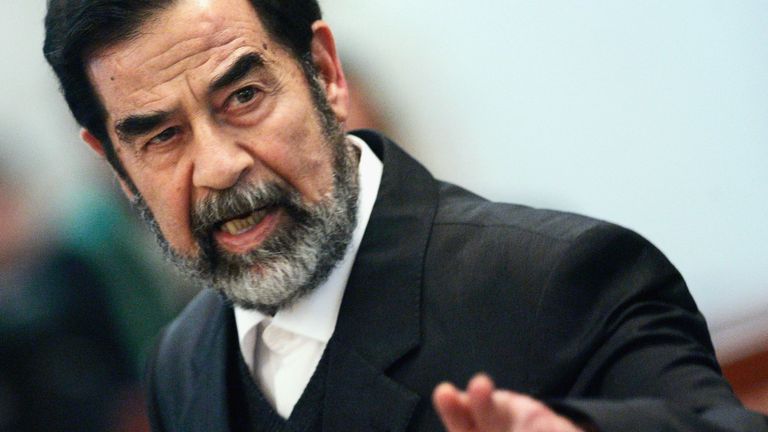The outcome of the US presidential election is too close to call – but it’s not the first time a vote has gone to the wire.
As the counting continues while Donald Trump and Joe Biden exchange verbal punches and legal challenges are launched, Sky News looks back at some other tight elections.
US election 2020 live: Follow the latest updates
- Hanging chads and a one-vote win
The US presidential election of 2000 did not involve the closest margin ever, but surely the most dramatic – and enduringly significant – of the close-run races for the White House.
After a month-long series of legal battles, in which so-called “hanging chads” became crucial to the outcome, the contest between Al Gore and George W Bush came down to a few hundred votes in Florida.
The state used punched card ballots where incompletely punched holes resulted in partially punched chads – small fragments of paper – dubbed “hanging chads”.
The disputed ballots went all the way to the Supreme Court, where justices voted 5-4 to stop the latest re-count, giving the Republican victory by 537 votes.
Mr Gore is widely believed to have lost the entire election due to that court vote.
- A smaller margin for a smaller prize
The leadership of a slightly smaller country, Cape Verde – estimated population: 543,767 – was up for grabs in 2001.
Pedro Pires of the African Party for the Independence of Cape Verde beat Carlos Veiga from the Movement for Democracy by 17 votes in the second round of the election after neither won more than 50% in the first round.
- Not OK, computer
There have been plenty of ties down the years, including one in the Swiss canton of Ticino, in the federal election of 2011, where Marco Romano and Monica Duca Widmer both polled 23,979 votes.
A computer was used to draw lots and Widmer was declared the winner.
But after complaints and appeals, the country’s Federal Supreme Court ruled against the use of a computer programme and ordered a new manual lottery which Mr Romano won.
- Message in a bottle
Incumbent Frank Wageman found himself tied with challenger Eleanor Podles in the New Hampshire Senate Republican primary in 1980 because he himself was unable to vote as he was in hospital.
Adjudicators placed two numbered balls in a black leather bottle, and the first one to roll out was the winner.
Mr Wageman’s ball came out first.
Ms Podles demanded a recount that did not change the outcome, but she gained revenge by defeating him two years later.
- Making his mark
Lib Dem candidate Mark Oaten led Conservative incumbent Gerry Malone by just two votes (26,100 to 26,098) in the race to become Winchester’s MP in the UK general election of 1997.
But 55 ballot papers were not counted because they had no official mark.
They split 18 to Oaten and 22 for Malone, giving the Tory a majority of two had they been included.
The High Court ordered a fresh election, in which Mr Oaten handily beat his rival (a former health minister) by more than 20,000 votes.
- The smallest margin
The smallest numerical majority in a UK Parliamentary election in the 20th century came in the constituency of Exeter in 1910.
Liberal candidate Harold St Maur won the original ballot by four votes, but Henry Duke, the Conservative incumbent, regained it on an election petition in 1911.
A court had changed the result to a one-vote victory for him.
- And the biggest-ever win?
It’s hard to beat a victory by 100%, albeit one recorded by a dictator; Saddam Hussein in 2002.
Every single one of Iraq’s 11,445,638 eligible voters cast their ballot for the country’s president, according to officials.
Hussein – who had ruled Iraq since 1979 – was the only candidate in a “referendum” that guaranteed him seven more years in power.
White House spokesman Ari Fleischer said: “Obviously it’s not a very serious day, not a very serious vote and nobody places any credibility on it.”
A year later, the president had been ousted following a US-led invasion.




